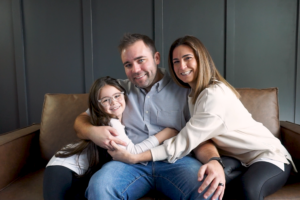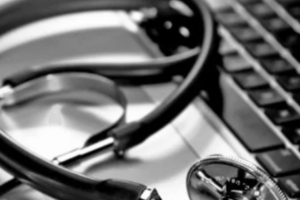Questions to Ask Your Doctor After Having a Blood Clot
If you have recently been diagnosed with a blood clot you may be asking, “What is a blood clot? How did this happen to me? Will I be okay? Will my life ever be the same?” These are all important questions that deserve to be answered. If you are struggling with what to ask your doctor after your blood clot diagnosis, below are some important questions that you might want to ask. Use this as your guide when you are in the hospital, or print it out and bring it with you to one of your follow up appointments.
Blood Clots
- What is a blood clot?
- What caused my blood clot? Why did I have a blood clot?
- Based on the cause, what are my chances of a recurrence?
- How do I prevent a recurrence?
- How serious is the damage from my clotting incident (PE/DVT)?
- Has any damage been done to my veins and circulatory system?
- Were any of my organs damaged (heart, lung, etc.)? If so, do I need to take any additional steps to treat that damage?
- Who should be on my medical team? Can I get a referral to a specialist? How often will I need to see them?
- Can I request testing for genetic and autoimmune clotting conditions? Do I have to come off anticoagulants for all testing or just for certain tests? Should any members of my family be tested?
- Why do I have to have so many blood tests? What are they checking?
- What is the difference between provoked and unprovoked and how does that impact my treatment options?
Pulmonary Embolism-Specific Questions
- Can I see the scans of my lungs that were taken? Will you explain the images to me?
- Do I have any lung infarct and scarring? Can you describe what those are?
- Does lung scarring go away?
- Will you be giving me a lung function test? How is that performed?
- How can I strengthen my lungs?
- Will I always have shortness of breath? If so, how long will it last?
- Will I always have lung pain?
- Should I get an SpO2 sensor for my finger? How do they compare to a fitness watch?
- What should I be watching for as far as my oxygen levels? What range should I be in? At what level should I go to the ER?
- Is it normal to cough up blood after a PE? How long would it last?
- Should I be concerned about my heart? Do I need to see a cardiologist?
- Can the blood clot now in my lung travel anywhere else in my lung or outside of my lung?
- Will the weather (heat, humidity, cold) affect my lungs after a blood clot?
- Will altitude cause any issues after my blood clot?
- Will I need to get another scan to see if my blood clot is gone?
- How long will it take for my clot to dissolve?
- How does a blood clot dissolve?
- What happens if my clot does not dissolve?
- Do I need an inhaler?
- What is “balloon therapy?”
Anticoagulants/Blood Thinners
- Anticoagulants and blood thinners? What’s the difference?
- Can you explain how a “blood thinner” works? Does it really thin my blood?
- What anticoagulant is the best for me and what are pros and cons of each?
- What is the most effective way to take my medication?
- What if I miss a dose?
- What if I cannot afford a blood thinner, what resources are available?
- Will I need regular blood testing on the anticoagulant you are putting me on?
- What if I re-clot on the anticoagulant? What would be the procedure?
- Please tell me about the oral anticoagulants (DOACS)? Can I take them?
- Do I need to change my diet on my medication?
- I have heard that I need to be careful with foods that contain vitamin K. What should I know about this?
- What is an INR?
- Can you tell me about home monitoring for warfarin?
- What is the biggest risk with anticoagulants?
- Are there any side effects of anticoagulants?
- Do anticoagulants make you suffer sunburn easier? If so, why?
- Do anticoagulants make you feel colder? If so, why?
- Will I lose my hair on anticoagulants? If so, why?
- What are signs of “hidden” bleeding?
- Should I wear a medical alert ID bracelet?
- Will my anticoagulant interact with other medications I take?
- How helpful is it to wear a medical ID bracelet?
- How safe are herbal medicines? Can I replace my prescribed anticoagulants with Nattokinase?
Recovery
- How long will it take for me to recover?
- What can I expect to feel emotionally and physically in the next several weeks and months?
- Should I see a counselor to prevent increasing PTSD? What about anti-anxiety medication?
- Should I use a heating pad or ice for clot related pain?
- Do I need to wear compression stockings?
- How long before I can travel? Do I need to take any precautions traveling?
- Should I elevate my legs when I sleep?
- Will I (or when do I) need to get a follow-up scan to check the status of the blood clot?
- Is there a risk to having too many scans?
- What types of over-the-counter pain reliever medication can I take? What is safe to take for pain?
Lifestyle
- What should I tell my job? When can I go back to work?
- Can I drive, take a long road trip for work, or fly in a plane? What is the protocol for travel?
- How will my clot affect my home and work life?
- Will this affect my sex life?
- Do I need to switch birth control? What options do I have?
- I want to start a family. What about pregnancy and childbirth?
- Will this affect my periods? Will anticoagulants make me bleed more?
- Is there anything that can be done for heavy periods and should my iron levels be checked?
- When can I return to exercise? How often and how intense?
- Can I ride a bike wearing a helmet?
- Can I ride rollercoasters and other amusement park rides?
- Can I get a massage?
- Can I get a tattoo?
- Can I use a hot tub, sauna, or steam room?
- Can I see a chiropractor?
- Do I need to make any lifestyle changes? (smoking, diet, exercise, etc.)
- Can I have a glass of wine or drink other alcohol on the anticoagulant you are putting me on?
Download or Print Out These Questions




